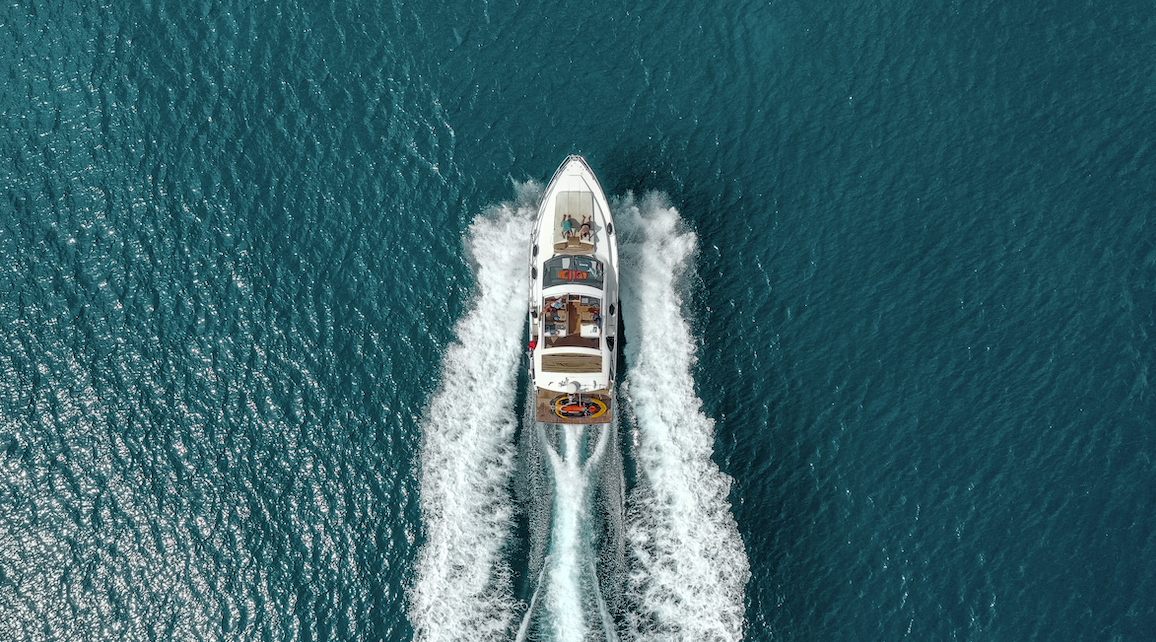If you’re in the market for a boat - whether it’s a center console, pontoon, sailboat, ski and wake inboard, etc. - it’s a good idea to get insurance coverage for it.
As you research your options, you may have some questions regarding coverage, costs, and the different types of policies available. We’re here to help you get better acquainted with boat insurance and everything it entails.
In this article, we will discuss the benefits of maintaining boat insurance- as well as what it covers and what it doesn’t, which states require it, pricing, and more.
Overall Benefits of Boat Insurance
- Flexible coverage: Most policies will offer a wide range of liability limits, deductible amounts, and extra coverages to choose from - such as Uninsured Boater Coverage, Consequential Loss Coverage, and Hurricane Haul-Out Coverage.
- Boat insurance can cover property damage: Damage to your boat can lead to expensive repairs. A boat insurance policy can help with those pricey repair bills.
- Protection from boating accident injuries: A quality boat insurance policy may protect your guests from watercraft-related injuries and subsequent expenses.
- Liability coverage: Boat insurance may provide coverage for and defense against an allegation that you are liable for property damage or bodily injury to a third party.
- Boat insurance is affordable: For those that want to secure coverage, the premiums for boat insurance policies are very affordable. There are also many discounts that may be applied to the policy as well.
» MORE: Boat Insurance Discounts That Could Save You Money
Boat Insurance Policies Versus Homeowners Policies
When insuring your boat versus your home, it’s best to have separate policies.
Homeowner’s policies may offer riders extending coverage for smaller boats - like kayaks or canoes - they do not provide proper protection for larger boats or boats with more horsepower.
If the homeowner’s policy does offer coverage for motorized boats, it will often have an extremely limited horsepower minimum. Furthermore, they cannot address several marine-specific risks - such as wreck removal, pollution and environmental harm, salvage work and more.
Types of Boat Insurance Coverage
Coverage will be contingent on the policy, however, some popular options include:
- Hull Damage and Personal Property Coverage: Can cover accidental, physical damage from fire, theft, collision, storms, trailering, and other commonly covered losses. This can apply to the watercraft itself, as well as additional items incorporated into the policy. If those items are damaged or stolen in a covered event, they may be repaired or replaced.
- Bodily Injury Liability: If you cause an accident that injures another person, this type of coverage can help pay for your liability resulting from the injuries.
- Property Damage Liability: May Covers damage that you cause to someone else’s property, such as a boat, dock, or other building structure.
- Comprehensive Coverage: This generally addresses things like theft, vandalization, natural disasters, and other damages that do not involve a collision.
- Medical Payment Coverage: If a third party is injured while on your watercraft and requires medical attention, medical payments coverage can help to pay for corresponding treatments.
- Additional Coverage Options To Consider: Towing & Roadside Assistance, Hurricane Haul-out, Environmental / Fuel Spill / Pollution, and more.
» MORE: Boat Insurance Replacement Cost Versus Actual Cash Value
The settlement received for a covered loss or damage will depend on your deductible, your coverage limits and other terms of your policy.
» MORE: Boat Insurance Replacement Cost Versus Actual Cash Value
Boat Insurance Exclusions
Boat insurance policies will present certain exclusions in terms of coverage - just like any auto or homeowners policy. Take a look at some common examples below:
- Corrosion, mold, or mildew damage
- Natural wear and tear from regular use
- Damage from marine life or other creatures
- Manufacturer defects
- Improper maintenance
Boat Insurance State Requirements
Most states will not require boaters to hold insurance coverage for their boat or PWC/jet ski. The states that do require boat insurance are:
- Arkansas: Requires liability insurance of at least $50,000 for all boats that are powered by engines of more than 50 horsepower.
- Hawaii: Liability insurance is required for boats that are parked in the Department of Land and Natural Resources Division of Boating and Ocean Recreation (DOBOR) offices - including harbors and offshore moorings. This entails $500,000 in coverage for rounded or sunken vessels, harm to docks, pollution regulation, and wreck removals. Additionally, the State of Hawaii should be named as the additional insured.
- Utah: Requires bodily injury and property damage liability coverage for all boats controlled by engines of 50 horsepower or more. The policy should include a $25,000/$50,000 for bodily injury and $15,000 for property damage - or a $65,000 combined minimum.
If your state does not require you to purchase insurance for your watercraft, most marinas and lenders will.

